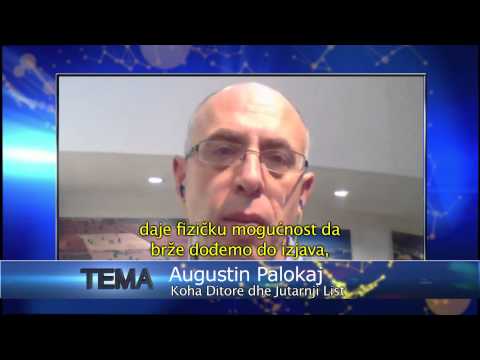The dialogue’s transparency
Talks between the Republic of Kosovo and Republic of Serbia for normalizing the relationship, and for vital issues that have to do with citizens of both countries, are continuing but Albanian, Serbian and foreign analysts say that this process isn’t transparent.
They assess that both parties involved in the negotiations interpret the agreements however they want, while EU, the facilitator, doesn’t comment them.
The correspondent in Brussels of the Kosovar newspaper ‘Koha Ditore’ and the Croatian newspaper ‘Jutarnji List’, Augustin Palokaj, says that politicians from both countries that participate in the talks give statements after the meetings, that they assess as transparency for the dialogue.
According to Palokaj, their statements are prejudiced and they don’t mention the context of the signed agreements.
“For politicians from Kosovo and Serbia giving statements are equal to enough transparency. However, those statements don’t argue the context of the agreements but have more to do with their prejudices, specifically for how they want the agreement to be presented,” said Augustin Palokaj in “Tema” programme directed by Faik Ispahiu.
Palokaj is surprised with EU’s stance on the transparency of the Kosovo-Serbia dialogue, which is a transparent institution, but they’re not showing that in Kosovo’s case.
“I’m surprised that the EU officials agree with this approach, because EU, unlike the governments of Kosovo and Serbia, is a very transparent institution. But this transparency isn’t shown in the Kosovo case. What is troubling is that EU, specifically the facilitators in the Moghelini team are convinced that through the lack of transparency they achieved such a great success,” added Palokaj.
Dushan Gajic, correspondent in Brussels of Radio television of Serbia (RTS), assesses that this EU stance towards the Kosovo-Serbia dialogue was done with the purpose of letting both parties involved ‘present’ the agreements however they wish.
“I think it’s a pragmatic approach, so that Belgrade and Prishtina can present the agreements easier to the public. This is understandable in a negotiations phase, especially in the beginning, but as time went by a few absurd situations occurred where you couldn’t secure concrete information, not only for the achieved agreements, but also in general on what they talked about,” said Gajic.
Pavle Dimitrijevic, from the nongovernmental organization “BIRODI” from Serbia said that in Belgrade there was almost no debates organized about the signed agreements between Kosovo and Serbia and of the dialogue in general.
“What we’ve noticed so far is that media in Serbia report exclusively on the events in Brussels, while the
Serbian government does nothing to provide extra information. In Serbia there’s no discussions on how the dialogue in Brussels is carried out, there are no open debates on programmes in media and NGOs don’t organize debates on this subject and in general this entire process is far from the public opinion,” said Pavle Dimitrijevic.
Meanwhile, Valerie Hopkins – from the project “Big Deal” on monitoring the dialogue, has said that she has noticed lack of transparency on the government of Kosovo when it comes to publishing plans on how to implement the achieved agreements between the two countries.
“Kosovo has the ten agreements from the technical dialogue and the April 19th agreement on the internet. But there is almost no information on how they’re going to implement these agreements, even though the agreements should have an implementation plan.
The implementation plan for the April 19th agreement was made public, with the deadlines, even though all the deadlines expired before the implementation of the components of the agreement,” said Valerie Hopkins.
However, she said that the judicial agreement, achieved on February 10th of this year, was not published on the internet yet.
According to her, two weeks after achieving the agreement BIRN has made continuous calls to the Government of Kosovo, trying to receive these information.

